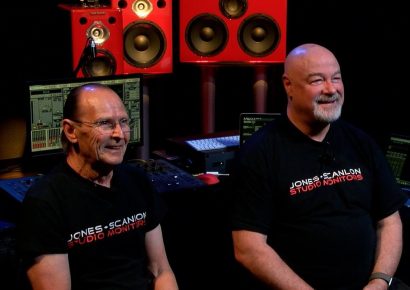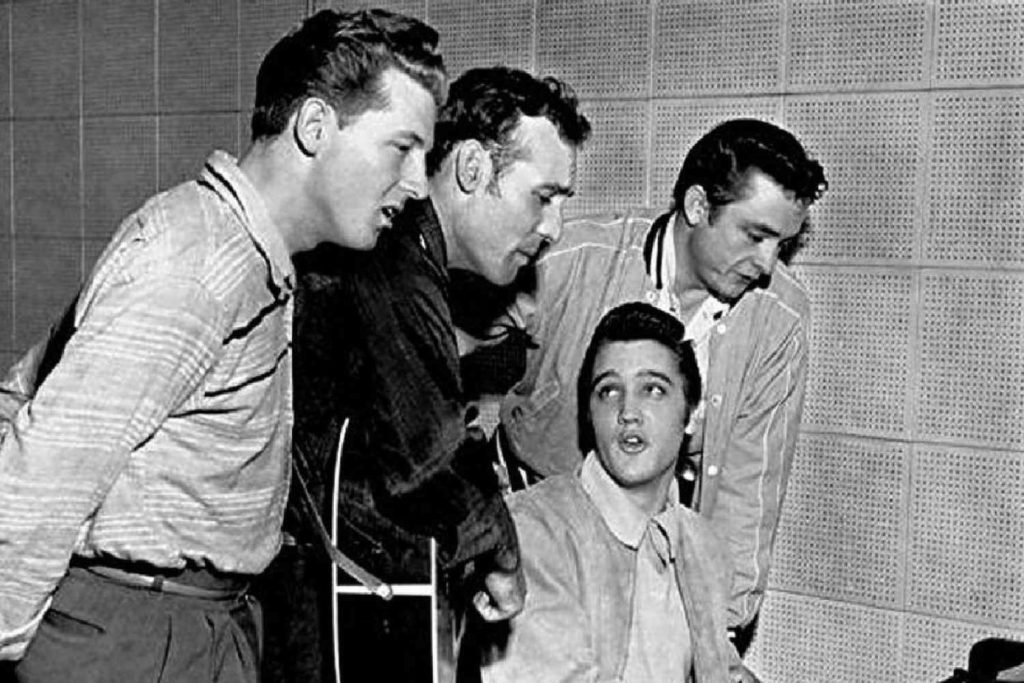The nu-metal pioneers chat all things new music, averting the pandemic, and more in #318's cover story!
With their 2019 album The Nothing, nu-metal stalwarts Korn were soaking in their renaissance. 2020, naturally, was expected to be more of the same.
No doubt you know where this story’s going, as it’s the story literally every band you listen to has undergone the last two years. Still, it’s one that needs to be told in order to tell the story of Requiem, the 14th(!) studio album from the band – an album that promptly blazes even more of a comeback trail than The Nothing did before it. The Nothing was no slouch, either.
Read up on all the latest interviews, features and columns here.
Unable to tour, Korn reconvened in mid-2020 with hopes to forge new material in the studio. However, for guitarist James Shaffer – better known as Munky – it meant more than that.

“It was truly such a great antidote for all the panic, the worry and the anxiety,” he says.
“I was going crazy at home – I love my three kids, but I am not a good home-school teacher. When our band goes on tour, the world is our office – that’s where we go, we make our money, make our living, we took it all for granted. When that got taken away, the conversation turned to how we can do something local. Nobody had any riffs or anything recorded, it was just like, ‘let’s get in there and make a record’.”
This approach was initially pushed back upon by fellow guitarist Brian Welch – otherwise known as Head. In his mind, Korn had earned time to themselves – which, while true, ultimately wasn’t what they wanted. “Part of me was like, ‘finally, these guys are being forced into a break,’” says Welch. “I thought that they were going to chill for a while, but about two months in they were like, ‘We have to go work’. I was like, ‘We just put out a record last year!’ They had to get out of the house. It ended up being really good for me, though. They can take away touring, but they can’t take away the band. It made everybody feel good to be able to get together. It was very healing.”

From Shaffer’s perspective, he and his bandmates effectively had nothing to lose. Regardless of if the sessions were fruitful or not, it still provided some much-needed bonding. “If this thing opens up again, and the world is back to normal, people will get to hear it,” reasons Shaffer. “If not, we’re here for ourselves and one another. Either way, we were in that room because it was all kind of saving our sanity. Just to be in a room with your boys, joking and laughing, having some fun and writing some music. Even if we didn’t get anything done, that would have really helped us psychologically.”
“Even if we didn’t get anything done, that would have really helped us psychologically.”
Welch agrees, noting how different the environment surrounding Requiem was when compared to the process for any of their other studio albums. “We didn’t have any time restraints,” he explains. “We didn’t have a label at the time. We didn’t have anybody watching over our shoulders. There was no deadline. There was such a sense of freedom in the creative process. There was this real sense that we could take risks here and try some different things that we haven’t maybe done or done in a while.”
Overseeing the new record was Chris Collier, who served as its co-producer alongside the band themselves. Though Requiem marks his first time as a producer on a Korn record, it’s not his first rodeo with the band. Collier has served as an engineer and additional songwriter on the three previous Korn albums, which promptly strengthened his bond with the group and its members. “It was a natural progression to me,” says Welch. “There’s obviously a degree of risk, because he’s not a big-name producer yet. Once we started recording, though, we immediately felt good about it and just went for it. We could have wasted a lot of time and money trying to find someone else, but it worked with Chris right away – thank God.”
For Shaffer, Collier’s presence on Requiem wasn’t just about playing to the band’s strength – it was about keeping them humble for good measure, too. “He’s got a great outside perspective, and he’s not afraid to hold back with us,” he says. “We’d be trying out riffs in the studio, and he’ll be like, ‘Yo, doesn’t that riff sound like early Metallica? Doesn’t that one sound like Prong?’ He’d always nail it, too. He’s like an encyclopedia of heavy metal. He’s got an amazing ear, and he can hear things that we don’t.”
Collier’s radar didn’t pick up on the album’s lead single ‘Start the Healing’ and nor should it have – there’s no mistaking it for anything other than Korn. It’s not as you quite know it, however – in the rare key of C-sharp, it allows for the band’s signature downtuned thrash to take a new shape through tension and release. “I really wanted to use the low register, but I didn’t want to go so low for it to just sound like every other Korn song,” explains Shaffer, who wrote the song.

“I lifted the key a little bit and let the open D-string ring next to it, which we tend to do on the higher strings. That’s kind of our signature sound, which is that dissonant, bumblebee-sounding thing. We’ve never really experimented on those lower strings, just because it can get muddy especially playing more than one and especially on the lower end. I was able to come up with this riff that worked harmonically when I added a couple of minor notes. It was just something that we don’t normally do in that key, and that freed it up to later use the open A as somewhere else to go as a moment in the bridge.”
When Shaffer showed the rest of the band what he’d been working on, the excitement was palpable. “It was just so different, especially the guitar thing he was doing,” recalls Welch. “Even though it doesn’t sound like it, he heard a guitar sampled by some electronic artist he heard and he thought it’d be cool to have something similar. That’s where he came up with it, and the rest is history.”
“On the first record, we had no fucking idea what we were doing.”
Korn are a rare breed of two-guitar bands in the sense that neither of their players are set with the permanent assignment of lead or rhythm. The way that Shaffer and Welch work as guitarists is purely instinctual – which makes sense, given they’ve been playing guitars together on-and-off for the better part of 30 years. “We tend to see where songs are going early on,” says Welch.
“We’ve played together for so long, y’know? We know who fits best in certain sections, and every song could be different. Maybe I’ll be playing something, and I hear something that James could do, like a cool lead part or whatever. Maybe he’ll be doing something with his crazy, cool effects, and I’ll hear something there. Sometimes it’s just in the spur of the moment as we’re writing. We’re not in any sort of competition, and we don’t care who gets lead or whatnot. It’s just whatever’s best for the song.”
With their 14th album set for release in their 29th year of being a band, longevity is the name of the game for Korn. What’s the key to still finding new ways to keep things fresh after all this time? For Shaffer, it’s a matter of adapting and evolving – even when you have a formula that works.
“On the first record, we had no fucking idea what we were doing,” he says.“That’s why it’s brilliant. It’s just pure expression at its best. That’s why a lot of people like those first two-three records – there’s a naivete to it you can’t duplicate. I remember Ross [Robinson, producer] saying to us something like, ‘Play the chorus again’. We were like, ‘The fuck is that? What’s a chorus?’ We genuinely didn’t know.”
Requiem is out February 4, 2022 via Loma Vista and is available for preorder or save here. Download or listen to ‘Start the Healing’ here.







